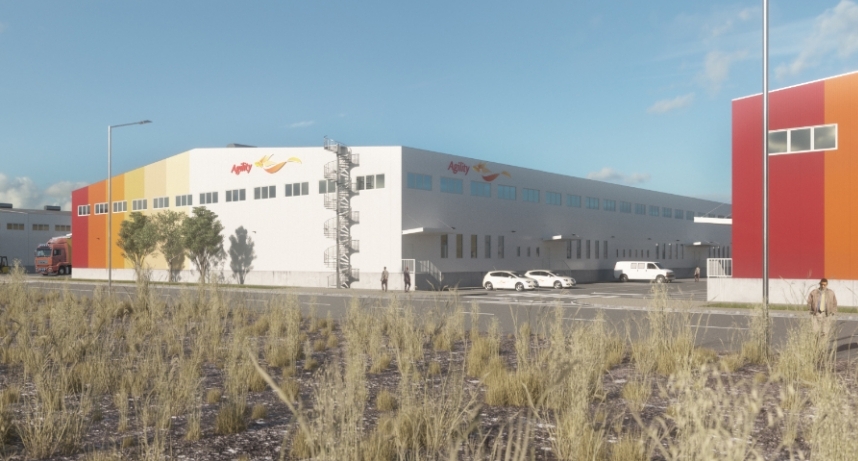Agility Logistics Parks’ revenue up by 4.5% in H1 due to warehouse demand
Agility reported a net profit of KD 16.2 million in H1 2020, a decrease of 61.3 percent over the same period in 2019.

August 18, 2020: Agility reported a net profit of KD 16.2 million in H1 2020, a decrease of 61.3 percent over the same period in 2019. EBITDA declined by 20.1 percent to KD 75.8 million, and revenue declined 1.3 percent to KD 765.1 million.
Agility Logistics Parks (ALP) and Tristar proved to be resilient during the first half of the year. Infrastructure group net revenue fell 8.4 percent and gross revenue declined 10.2 percent.
ALP revenue grew 4.5 percent in the first half amid increased demand for warehousing space, mainly from suppliers of medical equipment and food. ALP also witnessed strong demand from e-commerce players as it is strategically placed to service the requirements of fulfilment providers. ALP accelerated delivery of a few projects to meet customer demand. Developments in Kuwait, Saudi Arabia, and Africa are proceeding as planned, despite some interruptions due to lockdowns.
Tarek Sultan, Agility vice chairman and CEO said, “We entered 2020 with our business on sound footing, which is one reason that we were able to react quickly to the sweeping impact of the Covid-19 pandemic. We acted immediately to protect employees, customers, and communities, including providing donated logistics support for local governments and NGOs around the world. We also took steps to bring operating expenses and other costs in line with the new environment. If the crisis has demonstrated anything, it is the essential value of logistics and supply chain providers in times of severe disruption.”
Sultan said the economic fallout from the pandemic has had an uneven effect on Agility businesses. “Our contract logistics business and logistics parks have weathered this reasonably well because demand for storage space has been steady or increased, especially as customers have looked to add to safety stock or support pandemic-driven increases in e-commerce sales. Other Agility businesses, such as aviation and airport operations have been directly impacted by the decline in air travel and traffic and are now pivoting towards the development of pioneering new technologies that will be essential to the re-enablement of global travel.”
Agility Global Integrated Logistics’ (GIL) first-half EBITDA was KD 28.8 million, a 1.3 percent increase from the same period in 2019. This was driven by strong contract logistics, project logistics, and air freight results, as well as a sharp focus on containing costs.
Volumes were down in both air freight and ocean freight in the first half of this year, by 23.6 percent in air freight (tonnage) and 14.8 percent in ocean freight (TEUs), due to Covid-19 impact on demand due to lockdowns, production stoppages, and economic contraction across industries and geographies. However, H1 saw higher yields in Air Freight due to capacity shortages and a spike in demand for urgent shipments of PPE and other medical equipment. First-half air freight net revenue increased 17 percent vs. the same period a year earlier, while ocean freight net revenue decreased 16 percent vs. same period last year.
Contract Logistics achieved healthy growth (7 percent net revenue growth), mainly in the MEA Region (Kuwait, Saudi Arabia) as the result of the addition of new facilities and increased operating efficiencies.
National Aviation Services (NAS) reported a revenue decline of 29 percent, despite performing well in January and February. Despite the limited operations at many airports, NAS continued to serve evacuation flights, private jets, and cargo freighters.
“The full impact of Covid-19 is not yet clear - there are many possible scenarios and many unknowns - but we are taking steps to weather the storm and emerge stronger. We are adjusting to the reality on the ground within each respective business, and bringing the cost structure in line with the new levels of business we are seeing. We have a strong focus on cash, with a view to having ample liquidity to cover us for the foreseeable future,” Sultan said.


